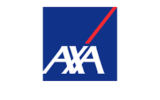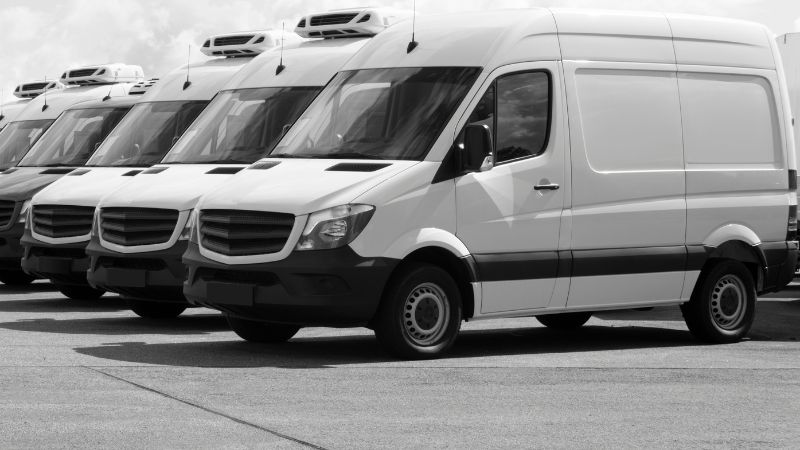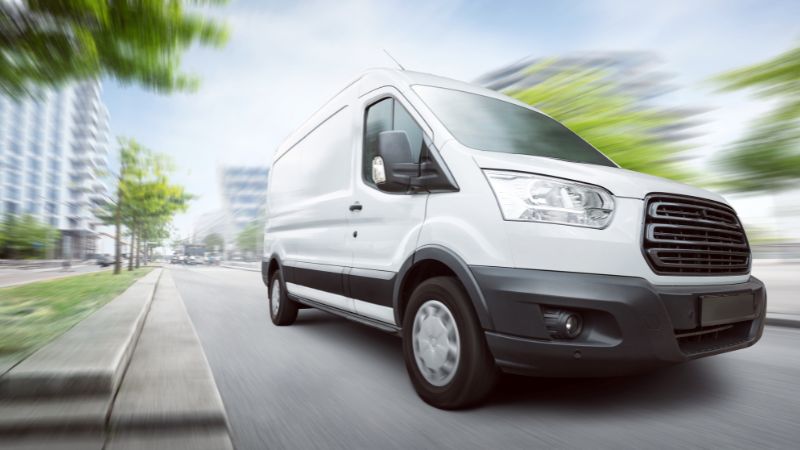Van Insurance that covers Tools
Compare Van Insurance that covers Tools Across The UK Market
Van Insurance
Compare Top UK Van Insurance Quotes!
- FREE Search – Over 60 UK Van Insurers
- One short form to complete
- Tailor your requirements
- Compare multiple providers
- Find a policy to suit your needs!


Van Insurance that covers Tools
Van insurance that covers tools is considered to be a necessity for a great deal of people who are employed as skilled tradesman. For anyone working in this field, adequate insurance is essential in order to protect their livelihood as well as some of their most important resources.
A great deal of self employed tradesman will require some form of protection in the event that their tools or van were to become lost, damaged or even stolen. Luckily, this has been recognised by a number of insurance companies, who regularly include the price of van insurance that also covers tools as part of a package insurance policy.
The majority of tools and van insurance policies that exist will provide adequate protection in the event of any problems. However, it is important to remember that the owner will only usually be reimbursed in the following circumstances:
- The van must have been securely locked and fastened
- If for any reason the insurance company finds any evidence to the contrary, they may refuse to pay any items that have been lost or stolen
The following are some examples of professions in which tools and van insurance may be considered a necessity, depending upon the circumstances:
-
An electrician
-
A builder
-
A plumber
-
A metal worker
-
A mechanic
-
A locksmith
It should be remembered that for many people who work as self employed tradesman, the loss of income that can be caused by a theft or similar incident can be financially devastating. Therefore, it is always recommended to ensure that an adequate insurance policy has been taken that will provide the best possible protection.
Use our FREE comparison service that lets you look at deals from some of the UK’s leading insurers to help you find the best private van insurance for your needs that offers comprehensive cover and good value for money.
Key Takeaways
- Van and tool insurance are both essential for safeguarding one’s livelihood, with van insurance covering the vehicle and its accessories, while tool cover provides protection for tools used in a trade or profession.
- Assessing the value of your tools is important to ensure sufficient cover and prevent overinsuring them. Proper storage practices can help protect from theft or damage.
- Alternative options include standalone policies or extending existing business/home insurance to provide increased protection at a potentially lower cost.
Understanding Van Insurance and Tool Cover
Tool insurance and van insurance are often mistaken as interchangeable, but they serve distinct purposes.
Van insurance focuses on protecting your vehicle and its accessories, such as accident recovery, roadside repairs, and cover for lost keys or satellites.
On the other hand, tool insurance offers financial cover for handheld tools, power tools, and other business equipment like ladders and laptops.
Both types of insurance are essential for safeguarding your livelihood and avoiding financial loss due to theft or damage, making tool insurance work effectively alongside van insurance.
For a better understanding of the importance of tool cover within van insurance, we need to examine their peculiarities and investigate the common cover options.
The difference between van insurance and tool insurance
Van tool insurance is a special type of tool insurance cover tailored for those who rely on transporting tools to do their job.
It applies to plumbers, electricians, and landscape gardeners alike.
This cover can include hand tools, power tools, and plant equipment, offering protection from unexpected loss, theft, or damage, excluding cases of negligence.
Determining the level of tool cover needed, based on your business and the tools and equipment you use, is a crucial step.
In contrast, van insurance focuses on safeguarding your vehicle and its accessories, such as accident recovery, roadside repairs, and cover for lost keys or satnavs.
But without the right tool insurance policy, your valuable tools are left vulnerable to theft or damage, which could lead to significant financial loss and interrupt your ability to work.
Common van insurance tool cover options
Van insurance policies typically offer business insurance cover between £1,000 and £10,000 for the repair or replacement of damaged, lost, or stolen tools.
Nevertheless, assessing quotes from various providers to identify the policy that suits your specific needs, like employers’ liability insurance if you employ people, and public liability insurance for potential third-party claims, is vital.
You can use our comparison table at the top of this page to compare quotes across the market.
Keep in mind that some tool insurance policies may have exclusions or limitations, so it’s essential to review the policy wording to determine the specific exclusions that apply to your tool’s insurance.
Evaluating Your Tool Cover Needs
To ensure you have adequate tool cover, you must assess the value of your tools and the associated risks.
This evaluation will help you determine the extent of cover necessary to protect your assets and effectively fulfill your tasks or safeguard your livelihood.
The subsequent sections will guide you on how to evaluate your tools’ worth and potential risks, aiding your decision-making process regarding tool cover needs.
Assessing the value of your tools
Understanding the actual value of your tools is vital to prevent overinsuring them, which would result in higher costs.
To evaluate the value of your tools, consider factors such as:
- Age and condition
- Brand and quality
- Market demand
- Comparable sales
- Replacement cost
Additionally, if you opt not to choose new-for-old insurance, the insurance company may offer a lower payout depending on the age of the tools in your toolbox.
Accurately assessing your tools’ value can guarantee your tool insurance policy offers enough cover for your needs, securing your livelihood and financial health, making tool insurance worth considering.
Considering the risks
When evaluating your tool cover needs, it’s crucial to consider the potential risks associated with your tools, including theft, damage, or loss.
Additionally, you must evaluate the potential financial repercussions of these risks and the possibility of adding tool insurance to your existing policy.
Analysing the risks associated with tool theft or damage enables you to make a well-informed decision about tool cover necessity.
Adding Tool Cover to Your Van Insurance Policy
Combining tool cover with your van insurance policy can offer convenience and potential savings.
In the forthcoming sections, we will investigate the merits of merging cover and talk about possible limitations and exclusions when incorporating tool cover into your van insurance policy.
Benefits of combining cover
Having a single provider for both van insurance and tool cover offers convenience, as you would only need to manage one policy and one provider.
Combining cover can also yield better savings and discounts, as providers may offer incentives for bundling multiple policies.
Furthermore, combining van insurance and tool cover into one policy can provide comprehensive guidance from a single provider, enabling you to make informed decisions that meet your requirements.
Potential limitations and exclusions
While combining cover offers numerous benefits, it’s important to be aware of potential limitations and exclusions when adding tool cover to your van insurance policy.
Items used for illegal activities, business purposes, or not listed on the policy may not be eligible for cover under van insurance.
Additionally, tools may not be covered if they are stolen from an unlocked vehicle, not stored in a secure location, or not listed on the policy.
Alternative Tool Insurance Options
Aside from adding tool insurance to your van insurance policy, there are alternative options for tool insurance, such as standalone policies or extending existing insurance.
The upcoming sections will scrutinise the advantages and disadvantages of standalone tool insurance policies and address the potential of extending your business or home insurance to include tools.
Standalone tool insurance policies
Standalone tool insurance policies are specifically designed to provide cover for tools and equipment used in a trade or profession.
These policies offer protection for tools that are expensive or difficult to replace, as well as for those left in a van overnight.
Standalone policies offer a range of advantages, such as protection for costly or hard-to-replace tools, cover for tools kept in your van overnight, and the option to select a standalone policy or add it to your existing insurance.
However, the primary disadvantage of standalone tool insurance policies is that they may be more costly than other insurance options.
Additionally, certain policies may include exclusions or restrictions that could influence the cover you obtain.
Extending business or home insurance
Another alternative to consider is extending your business or home insurance to include business equipment cover for your tools. This option can offer:
- Increased cover
- Additional protection
- Assurance
- Cost savings
- Flexibility
Before pursuing this option, it’s advisable to evaluate if your current insurer may extend business or home contents insurance to cover work-related tools.
Reviewing the policy language and exclusions in your business or home insurance policy is essential before presuming tools are included.
Tips for Protecting Your Tools
No matter which tool insurance option you choose, it’s essential to take proactive measures to protect your tools from theft or damage.
The subsequent sections will cover appropriate storage practices and security measures to aid in keeping your tools safe and secure.
Proper storage practices
Storing tools securely is imperative to reduce the likelihood of theft or damage and prolong the life of the tools.
A range of storage options are available, such as lockable toolboxes, tool chests, and wall-mounted storage systems.
It’s essential to select a storage option that is secure and suitable for the size and type of tools you possess.
Additionally, when storing your own tools, it’s important to consider security measures such as locks, alarms, and CCTV to deter potential theft and protect your tools from damage or theft.
Practicing appropriate storage and implementing security measures can assure the safety of your precious tools.
Implementing security measures
Implementing security measures is crucial for deterring theft and minimising the risk of tool loss or damage. Some security measures to consider include:
- Locking mechanisms
- Surveillance systems
- Secure storage
- Marking and identification
- Access control
- Inventory management
- Training and Awareness
- Insurance cover
Making a Claim for Lost or Damaged Tools
In the unfortunate event that your tools are lost or damaged, it’s important to navigate the claims process efficiently and effectively.
Understanding the documentation requirements and the claims process is essential for a smooth and successful experience.
The upcoming sections will address the documentation requirements for filing a tool insurance claim and acquaint you with the claims process.
Documentation requirements
When submitting a claim for lost or damaged property, such as tools, it’s crucial to provide the necessary documentation to validate your claim.
Receipts or proof of purchase for the items must be provided, as well as any police reports or crime reference numbers, if applicable.
Retaining receipts and photographs of your tools will also be beneficial in expediting the claims process.
Understanding the documentation requirements and having the necessary evidence can simplify the claims process and enhance the chances of a successful outcome.
Understanding the claims process
Familiarising yourself with the claims process is essential for a smooth and efficient experience.
The procedure for filing a claim for lost or damaged tools usually involves submitting a claim form and providing evidence of purchase.
It’s important to submit your claim within the specified timeframe, typically within 90 days of the reported damage or loss.
Keep in mind that the specific process may differ depending on the insurer.
Frequently Asked Questions
Can I insure my tools in my van?
You can protect your tools when stored in your van either through an add-on to your van insurance policy or a separate tool insurance policy.
Be sure to read through the details of the policy to ensure you have the cover that is right for you.
Does van insurance cover tool theft?
Van insurance typically does not cover tool theft; however, you can get specific insurance to protect your tools.
Make sure to properly lock and secure your van to ensure the best protection of your tools when left unattended.
Is it worth getting tool insurance?
Tool insurance is an important way to protect against risks that might interrupt your business. It can provide valuable peace of mind that your tools are covered, should any unexpected events occur.
Therefore, it is worth considering getting tool insurance for your business.
What are tools in transit insurance?
Tools in Transit Insurance is a type of insurance that provides financial protection for customers in the event that their property, or property they are responsible for, is lost, stolen, destroyed, or damaged when being loaded into, carried in, or unloaded from their vehicle.
This type of insurance is important for those who transport goods or materials for their business, as it can help cover the cost of replacing or repairing the items that are lost or damaged.
It can also provide peace of mind, knowing that if something does happen, they will be financially protected.
Are there alternative options for tool insurance?
Yes, there are alternative options for tool insurance such as standalone policies and extending existing business or home insurance to cover tools.










